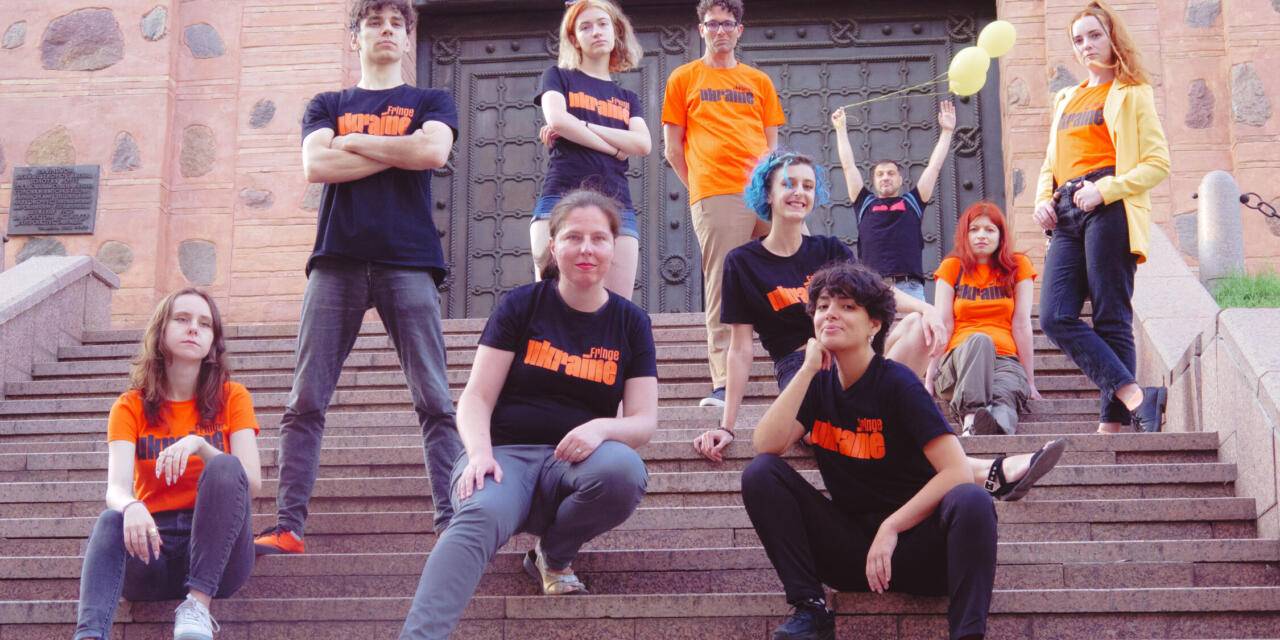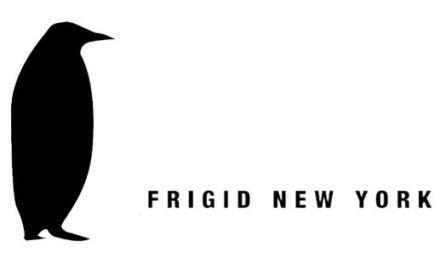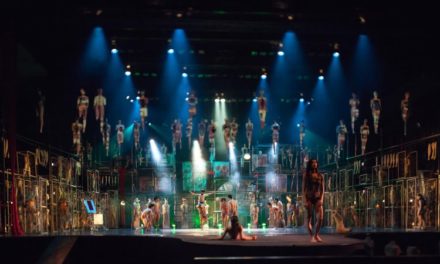Readers may or may not be aware that the first edition of the Ukraine Fringe festival, sub-titled Festival for the Brave, took place this year from 29 August to 1 September in Kyiv. Although the physical event took place over only three days, the festival also included online performances by a wide range of troupes. There were six countries represented at the in-person festival (Ukraine, Hong Kong, France, Switzerland, the UK and the US). The audience members were mostly local, with a sprinkling of foreign guests (myself included) and a team of volunteers which included an American teaching at a local primary school, several other foreigners and of course a team of enthusiastic locals. All of the participating troupes came there at their own expense, investing not only considerable time and money, but also some physical danger.
The Ukraine Fringe festival is the brainchild of Alex Borovenskiy and his team. Borovenskiy is an actor, director, producer and overall force of nature who founded the ProEnglish Theatre back in 2013. The slogan of the troupe: “To act is to breathe. To act in English is to breathe fire” exemplifies Borovenskiy’s passionate approach to both theatre and life. He is also convinced that theatre can play a key role in raising awareness of the current situation in Ukraine, or in his own words “Our mission is to open the gates to the world”. He, along with others, also established West (World of English Speaking Theatres) in 2022 in order to bring together English-speaking theatre troupes from around the world and encourage collaboration and exchange of ideas. ProEnglish Theatre also consists of its Drama School, which runs a range of theatre-related classes for both adults and children: scenes course, directors course, pantomime and much more.
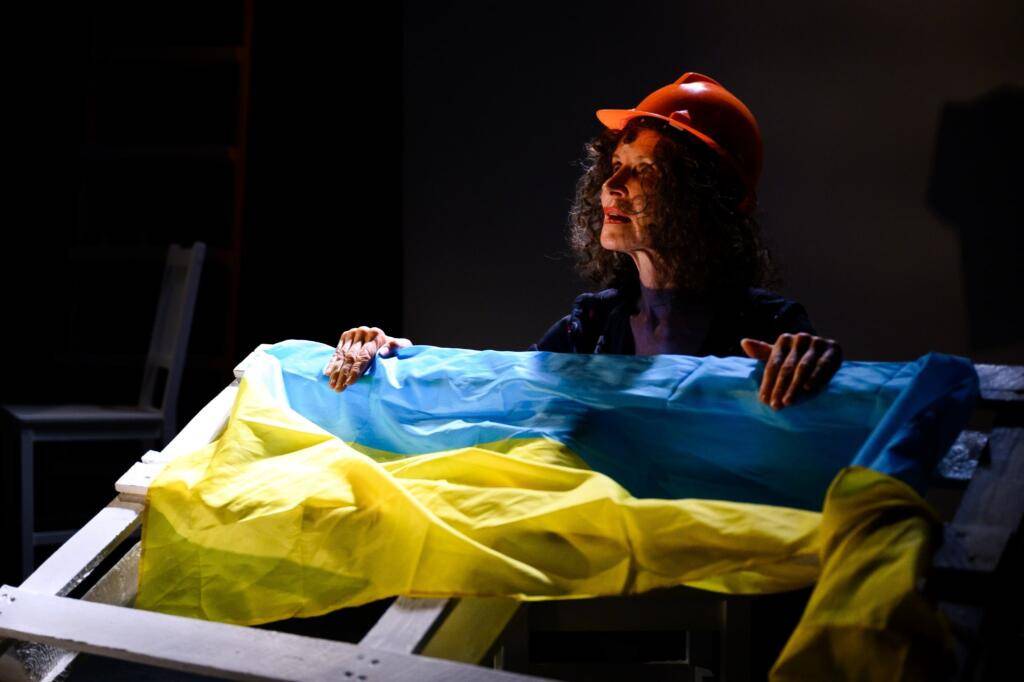
Kristin Milward, photo with the Ukrainian flag from the production Pussycat in Memory of Darkness; photo by Charles Flint.
Members of the ProEnglish team participated in other Fringe festivals in the past, most recently at the Prague Fringe. Borovenskiy decided it was high time to do the same in his native Ukraine. The festival is actually not completely new, as it has evolved out of a previous version entitled Pro.Act Fest, which was launched in 2018 and which took place annually, making this year’s Fringe actually the sixth theatre festival to be organized by the ProEnglish team.
This year’s official Fringe festival took place at three venues in war-torn Kyiv. The theatre space in Les’ Kurbas Centre seats around 100 people and was home to most of the larger performances. ProEnglish Theatre itself was the second venue and is the home space for Borovenskiy’s troupe and school and actually used to be and still functions as a bomb shelter. Finally, the third location, The Moralist Bar, is a pub with an outdoor stage. Each of the major participants performed their piece twice.
The Swiss actor Madeleine Bongard performed the one-woman piece Be My Marguerite!, inspired by the life and work of the French author Marguerite Duras. Although ten people were behind the staging, Bongard performed on her own, having even brought her portable stage design (consisting of naked male torsos resembling Greek gods) with her in a suitcase. She has been involved in supporting the Ukrainian theatre scene for a longer period, having first come eight years earlier to Lviv, where she ran acting workshops.
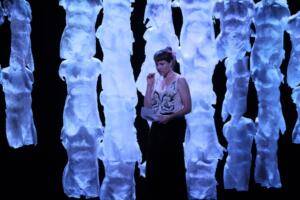
Madeleine Bongard performed the one-woman piece Be My Marguerite!; photo by Daniil Prmachov.
Loosely based on the writer’s biography and personal accounts of her life, the performance combined dance, loud techno music, spoken word and powerful visuals. Bongard explained that the piece “wasn’t planned as a monodrama, but was based on fine rhythm dance”. During the performance, images were projected onto the hanging torsos: superimposed tree branches, claw-like and scratching, a naked female form, Bongard’s own shadow and the face of Marguerite Duras. The last lines were directed at the audience, “This show’s for you”.
The French actress Julie Zeno performed solo. Her piece, L’Imposteur by Kris Krainock, was in both French and English, with sub-titles in English for the French lines. Zeno volunteered to come to Kyiv and perform her play in order to contribute in some way to the Ukrainian cause. Her piece focuses on a young woman returning home to her flat and preparing for an online audition for an acting role. This brings out a number of issues concerning her chosen profession as an actor, her relationship with her parents and her own relationships. A French speaking voice suddenly appears, around one third of the way through, and begins relentlessly harassing and provoking her, insisting, among other things, that she is a mere imposter. The piece combines pathos with comedy, the latter being exemplified by the protagonist’s comment to herself regarding her relationships with men: “I went to more therapy sessions than I went on dates, some of the dates turned into therapy sessions.” Zeno’s character finally turns the tables on the bullying French speaking voice and begins to assert herself.
Although Zeno’s character may be an imposter of sorts, the actor herself is far from it, having experienced arguably the most dramatic adventure on her way to Kyiv. Since flights have been grounded from the beginning of the war, Zeno took a sleeper train from Poland which was scheduled to arrive in the morning on 30 August. She woke up around eight and realized their train had come to a stop, only to find out that the tracks had narrowly missed a missile strike in the night. After around a three hour wait, the train set off again, passing by a massive crater right next to the tracks. Zeno consequently had a rather rude welcome, to say the least, to war time conditions in the country.
The Hong Kong troupe Theatre Aether and Blank Space Studio brought the most experimental piece to Kyiv or at least for a western audience. Entitled To-To: A Fairytale of Lo – Ting, and performed as a solo piece by Thomas K.H. Tse, the performance was in the style and tradition of Japanese Butoh dance theatre. The story, however, is deeply connected with Hong Kong, where the troupe is based, as the legend concerns a human-fish creature who is viewed by some as the ancestor of the people of this renowned city. The performance began with a masked ‘person’ slowly descending a ladder, wearing a monk-like robe. The performance sped up and slowed up, accompanied by various genres of music. It culminated with Tse tying a ball of string around the hands of various audience members, creating a web, a connection between himself and the audience members.
Tse expressed the following sentiments in tears at the end of the previously silent performance: “Thank you for keeping fighting. Thank you for everything. You have no idea how much you mean to us Hong Kong people.”. Tse was accompanied by his colleagues William Wong and Ericsson Seen, who were responsible for the staging and sound. Tse also stayed on in Ukraine, after the departure of his countrymen, in order to run workshops with the public in various locales in war-torn Eastern Ukraine.
The British actor Daniel Gerroll brought an adaptation of a novel Dr. Glas, published in 1905 by the Swedish writer Hjalmer Soderberg. The play is told in first person through the mouth of the eponymous title character, a doctor who has fallen in love with a patient, but is blocked by the existence of her husband, the Reverend Gregorius. He eventually kills his antagonist by poisoning him with pills and wants Mrs. Gregorius to know he ‘saved’ her. She is completely uninterested, however, and all of his ridiculous, horrible plottings amount to nothing. The play contains a number of grotesquely memorable lines, for example, Mrs. Gregorius relating to the Doctor how she was treated by her father as a young girl: “One time he beat me when I didn’t deserve it and that’s the happiest memory of my childhood”.
The American actor/director Robert McNamara performed a solo piece A Report to an Academy based on the Franz Kafka story. McNamara has not only participated at a number of Fringe festivals, but has also consciously chosen to perform in war zones, having spent time, for example, in Croatia during the Yugoslav Wars. The play was initially directed by his late wife Gabriele Jakobi. The play tells the story of Red Peter, an ape captured in Africa and brought back to Europe. Peter transforms himself into a human in order to escape his captivity and eventually loses touch with own ‘apeness’. The play touches on questions of identity, alienation, cruelty to animals and what it means to be human.
The British actress Kristen Milward actually brought two productions with her to Kyiv. Her solo performance of Pussycat in Memory of Darkness, originally written by the contemporary Ukrainian author Neda Nejdana, has been performed to great critical acclaim at Finborough Theatre in London. The play takes place in Dunbas in 2014 and revolves around a woman who has lost everything except one last kitten she is desperately trying to sell. Milward has been deeply involved in the Ukrainian cause for several years now, performing the play as part of the worldwide Ukrainian Play Readings.
She also performed a piece based on the diaries of the German writer Friedrich (Fritz) Reck-Malleczewen and the Dutch Jewish author Etty Hillesum, both connected with World War II the Holocaust and the Nazi regime. Entitled Nero’s Second Burning, she performed alongside the English-Armenian actor and playwright Dikran Tulaine. The diaries are obviously still painfully relevant to the current situation in the world today.
Yet another Hong Kong artist Michele Chung, living abroad in political exile, had 15 improvised performances, as part of her project Move to Meet. Although the least visible of the participating artists, she was by no means any less committed to her art. Chung voiced eloquently her own reasons for participating in Ukraine Fringe: “As an exile who has already lost my home… I seek comfort in sharing with people who suffer the same loss.” Through sharing and listening to the often tragic stories of locals she met during her performances, she acknowledged having received strength in her own journey, comfort for her own pain.
Finally, the Kyiv home troupe performed one of their own pieces Naive Experiments, directed by Borovenskiy and English Songs as Comedy. Local actors also contributed to the highly entertaining Monologues Night.
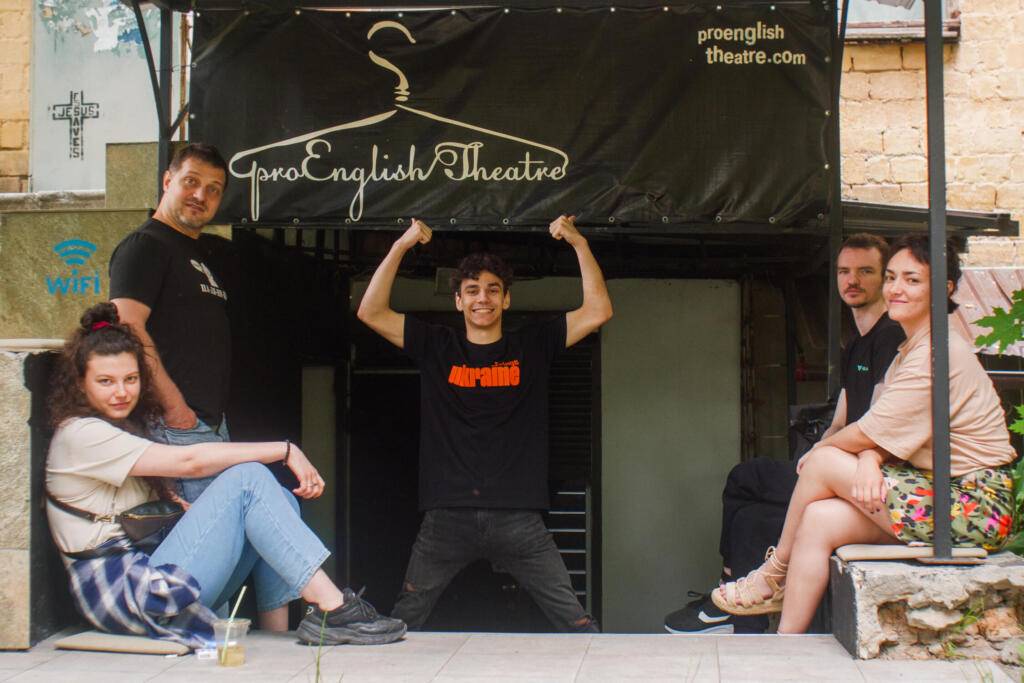
Alex Borovenskiy and his team in front of the bomb-shelter ProEnglish Theatre, photo by Anton Dmytruk.
I decided to come to Kyiv literally at the last minute and had no specific expectations. After a 24-hour trip by bus from the middle of the Czech Republic, including several hours of waiting at the Polish-Ukrainian border, I found my hotel, after making my way through a checkpoint manned by military personnel. I shared the hotel with several of the performers, which enhanced the shared sense of community and intimacy. Despite Ukraine being at war, the city felt peaceful in some way and the atmosphere at the festival was something I had not experienced since the early 1990s in Czechoslovakia, specifically an extraordinary enthusiasm for art, literature and theatre. I was told a number of times how much it meant to the locals that artists and even participants, like myself, would be willing to take the dangerous, time-consuming trip to be there with them. It was an honour, however, to share this special moment with the local team and audience. The performers I spoke with voiced similar sentiments, for example, Michele Chung once more: “I went to Fringe because I wanted to show Ukrainians that they are not alone.” Speaking for myself, I immediately felt part of a special community, with a remarkable pureness, with no posing and pretence, led by the example of the seemingly bottomless energy of Borovenskiy. The festival definitely embodied the true Fringe spirit. At the risk of voicing a cliché, the festival was a genuine labour of love: love for theatre, love for a besieged Ukraine and love for art and community.
This was the first Fringe Kyiv festival, but definitely not the last. Incidentally, next year’s festival will take place on exactly the same days, 29 August to 1 September 2024.
David Livingstone is an American academic working in the Czech Republic for the last thirty years. He teaches Shakespeare, British and Irish Modernism and American folk music at Palacký University, Olomouc.
This post was written by the author in their personal capacity.The opinions expressed in this article are the author’s own and do not reflect the view of The Theatre Times, their staff or collaborators.
This post was written by David Livingstone.
The views expressed here belong to the author and do not necessarily reflect our views and opinions.

